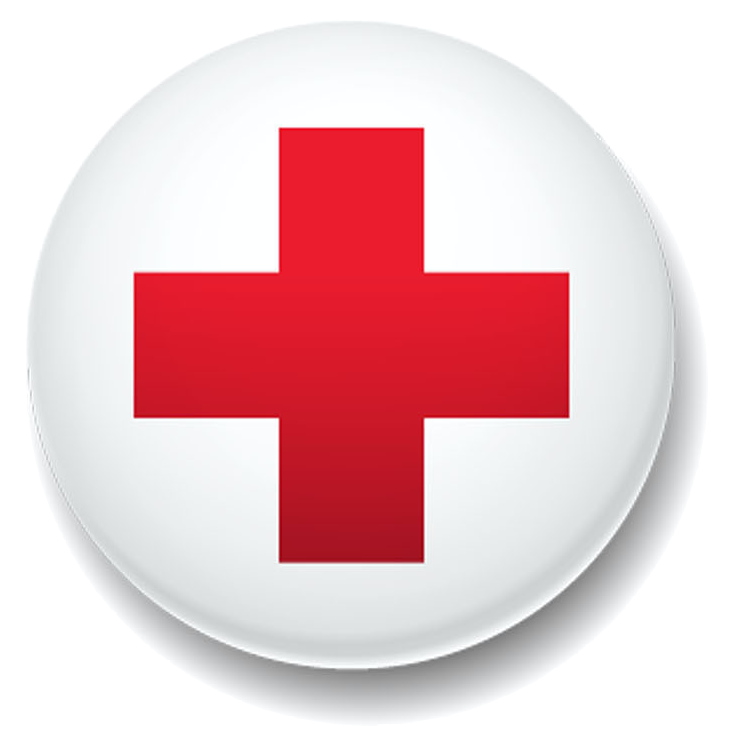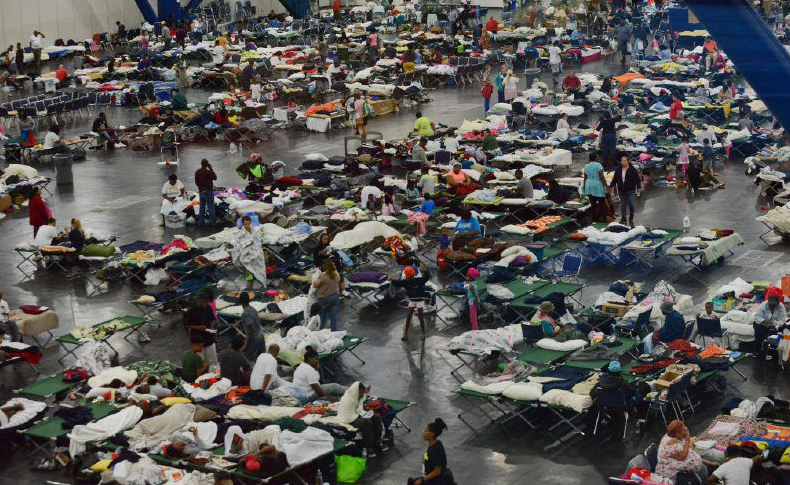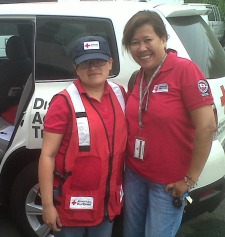What’s it like to grow up without extended family? What does it feel like to be the only child of World War II concentration camp survivors whose families had been killed in Nazi camps?
It was a lonely road for Johnny Herzberg who emigrated from Europe as a young child. Now, in his retirement years, Herzberg turned to the Red Cross Restoring Family Links resources, a team in West Los Angeles headed by Svetlana Fusekova, Samantha Forcum and Americorps Barbara Mariscal. They opened the door to lost relations for Herzberg and helped him connect with family in Latvia through their vast, worldwide network of resources.
Herzberg’s own story is a credit to the restoring family links team he calls “Charlie’s Angels,” who brought very quick resolution to his quest.
But, to start from the beginning.
“Before World War II, my parents were married to two different spouses. They each had families with children,” says Herzberg. “When the war started, both families were taken into concentration camps and, with the exception of my parents and my father’s youngest brother, Joseph, all were killed. My parents then met while in a camp in Germany and survived together for four years. After the war, they moved to Sweden, where they got married,” he continues. “Sweden was open and embracing to camp survivors. But it was my father’s dream to come to America, and we moved to New York where I grew up.
“I thought my mother and father were the only relatives that I have ever had in my life,” Herzberg says. “But when I was a child, my father received a life-changing letter from his youngest brother Joseph, who had survived and was at that time living in Siberia, Russia. My father sent care packages and wrote letters for several years, until Joseph’s letters stopped coming. My father assumed that he had passed.” Ultimately, we found out that he died in 1982, at the age of 74.
Like so many other Holocaust survivors, it’s the stories of birthplace and lost family that is passed down to the children, so last year, Herzberg made the trip to his father’s birthplace, Riga, Latvia.
“I toured the Riga Ghetto where my father had been held captive. It was emotional to see it. I visited the Holocaust Tracing Center in Latvia to try to track down some family archives that might exist,” said Herzberg.
Unfortunately, the Tracing Center was closing and would be closed for the next three days and Herzberg was leaving the next day. But as often happens with stories like Herzberg’s, empathy trumps the rules and a supervisor who overheard his story invited him in and photocopied every document that he had with him so she could begin the search. Herzberg commented, “She, like me, had lost her entire family, and we immediately bonded and cried. She said that she would do what she could and keep me updated with emails.”
Three months later, Herzberg received an e-mail from her confirming that Joseph did survive and escaped to Siberia. She then suggested that Herzberg contact the International Red Cross Holocaust Tracing Center, which led him to the Red Cross in West Los Angeles where he met with his team of “Angels,” Svetlana, Samantha and Barbara. His case was opened in February, 2014.
They launched tracing efforts, researched his family’s origins and created the family history back three generations. While he was prepping his documents for the Red Cross team, Herzberg located a 40-year-old letter that his parents had received. The letter held the key to Herzberg’s re-discovery of family.
“I came across a hand-written letter in very broken English from1975, written by Liana Herzberg,” he explains. “She was 19 years old in that year and was the only daughter of my father’s surviving brother, Joseph. It had a date of birth and an address in a suburb of Riga.”
Herzberg was elated to find that he had another living relative.
Svetlana and her team added this element to the international search. This letter opened the door.
“On March 25th of this year I received an email from the Latvian Tracing Center telling me that
they had located Liana Herzberg in Riga,” says Herzberg. “She was really excited that they had found her. I went to my Skype account and within 10 seconds it produced her full name, date of birth, current location, and a photo. I Skyped her, and there she was full screen. I held up the letter that was written almost 40 years ago and asked if she had written it? She looked at it and immediately responded. ‘YES….I wrote that letter.’ I was now speaking face to face with my only living relative, Liana Herzberg, my first cousin.”
Herzberg, Liana and her two daughters have had a number of tearful conversations, catching up on their pasts and present. He is planning to visit them in August.
For “Charlie’s Angels” this case is now closed; but for Herzberg, a new door to family has opened. So grateful for their help with his personal search, and recognizing the value that the Red Cross brings to so many, Herzberg is now seriously considering becoming a Red Cross volunteer.






What a beautiful story. This should give hope to others that they might be able to find family members throughout the world.
Thanks for sharing and for making this happen for John.